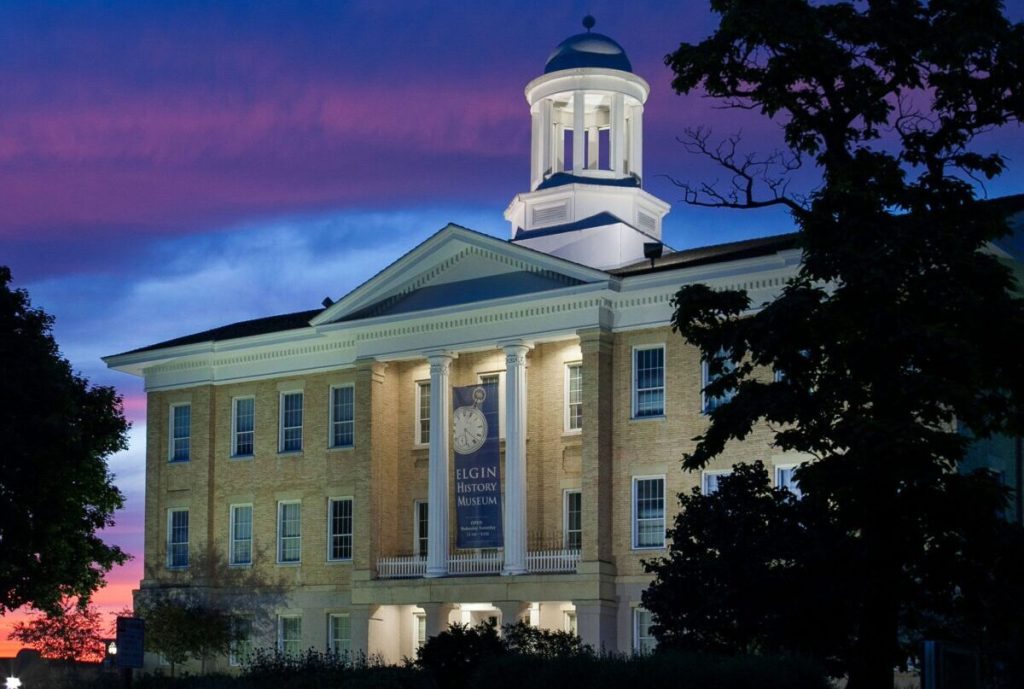By the Elgin History Museum
How about an Elgin trivia game?
So, did you know that Elgin was founded in 1835?
The earliest settlers of Elgin, the Giffords and Kimballs, thought this was the perfect spot to establish a town because it was on the route between Chicago and Galena and on the banks of the Fox River. The river provided waterpower for future mills and factories in a time before electricity.
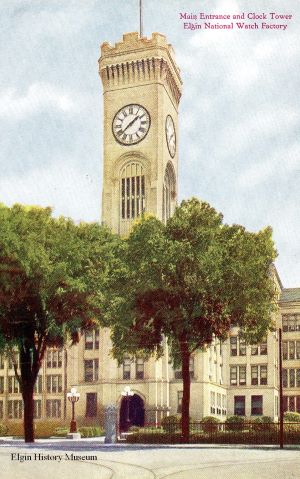
Here’s another one. Did you know that Elgin was once home to the largest watchmaker in the world?
That’s right, the Elgin National Watch Company was built in 1865 and produced more than 50 million watches over its 100-year-history. It was Elgin’s largest employer with nearly 4,000 on the payroll at its peak. The watches and clocks were sold throughout the US and abroad, which made the name Elgin famous worldwide. There is a great exhibit in the Elgin History Museum with over 100 watches. The Museum also produced a feature-length documentary on the watch company called Circle of Time.
Did you know that Elgin was once considered the dairy capital of the United States?
In the mid-1800s the city of Chicago was growing really fast and farmers in Elgin got the idea that they could make good money selling milk to people in Chicago. One of the very first railroad lines going west from Chicago ran right through Elgin, so the farmers used the railroad to ship their milk to Chicago. Then, of course, Gail Borden built his condensed milk factory in Elgin and the dairy business in Elgin really took off.
It got so busy that the farmers decided to establish their own board of trade which ultimately became more influential than the dairy boards in Chicago or New York.
The Elgin board essentially set the price for butter and cheese for most of the country for nearly 40 years. The Museum produced a documentary about Elgin’s dairy industry, along with a traveling exhibit that they bring to schools and libraries as part of their community outreach efforts.
The Elgin History Museum also produced a documentary on Elgin’s African American heritage.
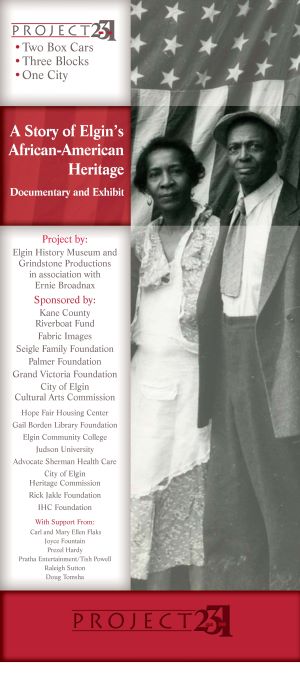
The first African Americans to live in Elgin were ex-slaves who were freed during the Civil War. 110 former slaves, mostly women and children, came to Elgin from the south on two boxcars in 1862. Although many in Elgin were staunch abolitionists at the time, others in the community were not as welcoming and the ex-slaves were ultimately relegated to live in a 3-block area on Elgin’s northeast side which became known as The Settlement. The Museum’s documentary, Project 2-3-1: A Story of Elgin’s African American Heritage, tells the whole story. There is an exhibit at the Elgin History Museum that chronicles Elgin’s African American heritage, and also highlights the various immigration patterns that give Elgin its rich diversity today.
Did you know that Elgin was once home to one of the most popular road races in the country?
Not an oval track like the Indy 500, it was an open road race. The 8.5-mile route ran over oil-soaked dirt and gravel roads that wound through farmland on Elgin’s west side. The first race was run in 1910, and the last was in 1933. Some of the top drivers in the world raced in Elgin in front of crowds that topped 50,000.
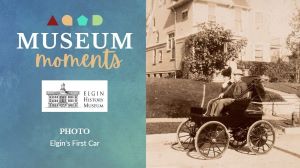
The Elgin History Museum is located in the historic Old Main Building at 360 Park Street on Elgin’s historic east side. Old Main was the first school building for Elgin’s famous private prep school, Elgin Academy, built in 1856 in the classic Greek Revival style. The Elgin Area Historical Society partnered with the City of Elgin to rehabilitate the deteriorated Old Main building, and opened it as a Museum in 1987. Today there are two floors of exhibits promoting Elgin’s sense of pride and place. The third floor is the Reber Research Library.
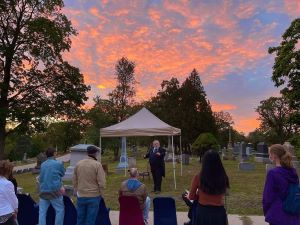
The Museum does a lot to promote history outside its four walls. Every 4th weekend in September, the Museum hosts the Bluff City Cemetery Walk, an Elgin tradition since 1987, and a Classic Car Show on the Museum grounds each July. The Museum is working with the City of Elgin to make the oldest cobblestone building in Elgin, the Nancy Kimball Cobblestone House, a community education center. In addition to all that, the Museum provides a wide range of programming for children and adults, and offers research services for individuals and organizations. The Museum is open Wednesday, Thursday, Friday, and Saturday from 11am – 4pm. Admission is $3 for Adults and $1 for Students. For more information visit elginhistory.org.

